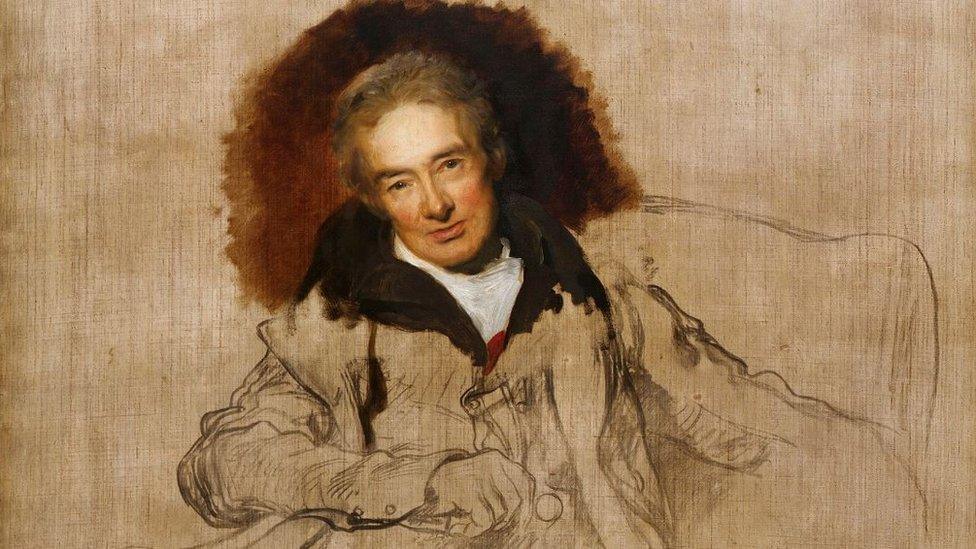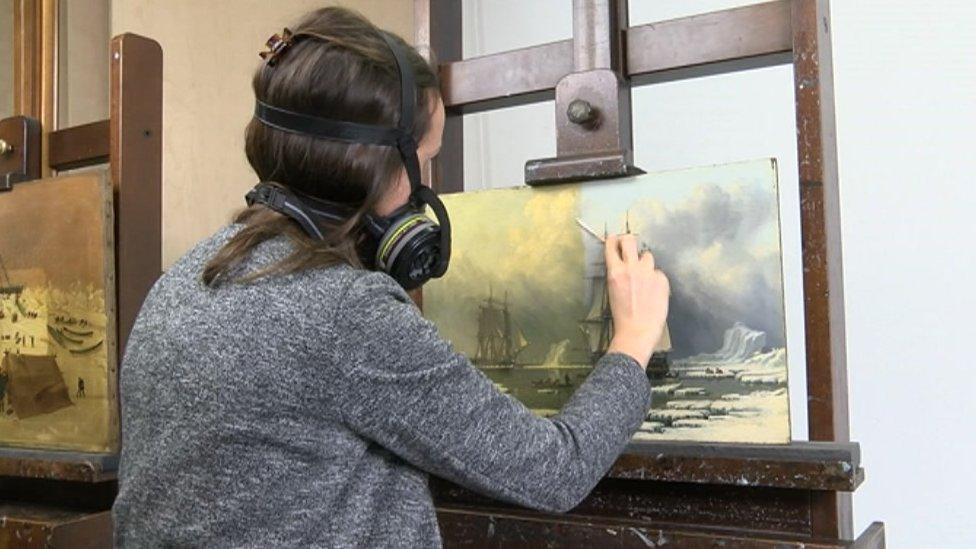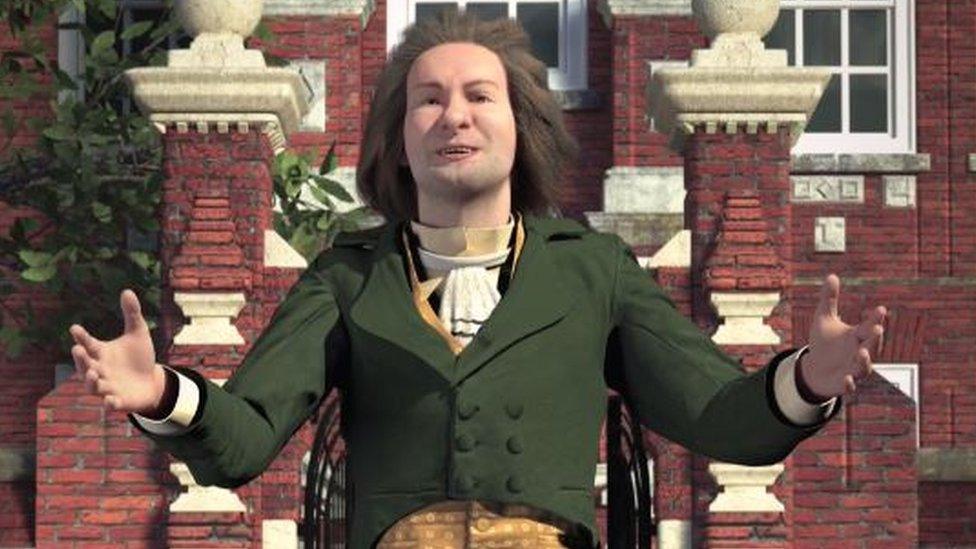William Wilberforce portrait comes home to Hull
- Published

The portrait was one of the first acquired by the National Portrait Gallery when it was established in 1856
A portrait of abolitionist William Wilberforce currently in the National Portrait Gallery is to be loaned to his hometown of Hull.
Sir Thomas Lawrence's unfinished portrait is to be exhibited in the city's Ferens Gallery for four months.
Wilberforce was born in 1759, the son of a Hull merchant he was elected MP for Hull in 1780.
He later became the parliamentary spokesperson for the campaign to abolish the transatlantic slave trade.
Just weeks after Wilberforce died the Slavery Act was passed in 1833, abolishing slavery in the British colonies.
Sir Thomas Lawrence's portrait of William Wilberforce will be one of 50 pictures sent out across the country by the National Portrait Gallery as part of its Coming Home campaign.
Dr Nicolas Cullinan, of the National Portrait Gallery, said he hoped the loans would "foster a sense of pride and create a personal connection for local communities to a bigger national history".
An accompanying exhibition to coincide with the loan is to look at Wilberforce's legacy.
Wilberforce's birthplace survives and his house has been turned into a museum telling the story of the slave trade.
The portrait will be on display with works from the Ferens permanent collection in partnership with Wilberforce House Museum.
Councillor Marjorie Brabazon said: "This exhibition is a great opportunity to highlight areas of our museum collection alongside the Sir Thomas Lawrence masterpiece."
The free exhibition will run from 21 September 2019 until January 2020.

Follow BBC Yorkshire on Facebook, external, Twitter, external and Instagram, external. Send your story ideas to yorkslincs.news@bbc.co.uk, external.
- Published18 March 2019

- Published23 March 2017
